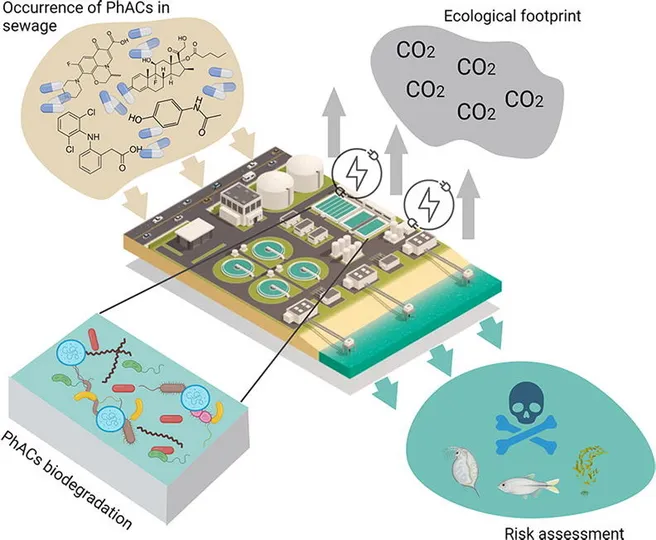Several studies have investigated the removal of pharmaceutically active compounds (PhACs) by wastewater
treatment technologies due to the risk that these compounds pose to the environment. In this sense, advanced
biological processes have been developed for micropollutants removal, such as membrane bioreactors and
moving bed biofilm reactors. Thus, this review holistically evaluated the biodegradation of 18 environmentally
hazardous PhACs. Biological processes were assessed including removal efficiencies, environmental risk, and
ecological footprint (consumption of resources and energy, atmospheric emissions, and waste generation). The
maximum concentration of PhACs for a low or negligible risk scenario in treated wastewater and the potential of
biological processes to meet this goal were assessed. Among the evaluated PhACs, the most biodegradable was
paracetamol, while the most recalcitrant was diclofenac. Combination of conventional processes and advanced
biological processes proved to be the most efficient way to remove several PhACs, mainly the osmotic membrane
bioreactor.
New Research Article by Santos et al. 2021
